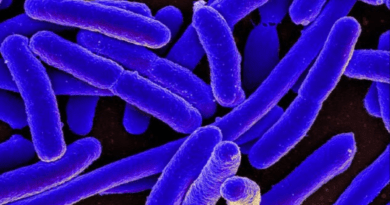See How Vitamin D And Calcium May Now Reduce The Incidence Of Female Cancer.
Supplementing with calcium and vitamin D may lower the risk of cancer mortality in postmenopausal women, but it may also raise the risk of cardiovascular disease death.
This is supported by a study that was just published in the Annals of Internal Medicine journal.
It found that women who took supplements including calcium and vitamin D had a 7% lower chance of dying from cancer but a 6% higher risk of dying from cardiovascular disease.
According to the study authors, “our analysis also revealed an 11% lower risk for all cancers, including 31% and 19% lower incidences of colorectal cancer and invasive breast cancer, respectively.”The University of Arizona researchers used a follow-up analysis of the largest randomized trial of calcium ever done in order to arrive at their conclusions.
The study’s authors do point out that the results should be regarded cautiously because of how the study was conducted.Future research in this area is warranted. “Given the study design, the researchers could not disentangle the added benefits or harms of supplementing with calcium and vitamin D in combination versus vitamin D alone.”Cancer deaths in womenThere are several plausible explanations for the observed decline in cancer risk within the study population.
Remember that this is a follow-up that was conducted following the conclusion of the experiment. Thus, it’s actually just an observational follow-up of people who participated in an earlier trial; they aren’t randomized anymore.Many other things can influence that.
It’s possible that because there has been less cancer, this group is somehow healthier. It’s impossible to verify if the claims that they’re eating better, exercising more, and being thinner are accurate.
However, prior observational studies have shown that people who take calcium supplements are more likely to experience events related to cardiovascular disease than people who don’t.
The risk of heart disease and stroke can also be increased by the low levels of estrogen associated with menopause.
The risk of cardiovascular disease events is higher in people who take in more calcium than 1,400 mg daily.
The recommended daily intake of calcium for women over 50 is 12,000 mg.Why women at menopause require calciumA decrease in estrogen synthesis during menopause causes a decrease in calcium absorption and an increase in calcium loss through the urine.
Women lose approximately 1% of their bone mineral density annually after menopause. Because of this, osteoporosis affects 30% of postmenopausal women in the US, and of them, at least 40% will have at least one fracture brought on by a small trauma like a fall.“Every woman is susceptible to osteopenia and osteoporosis during this menopausal transition and beyond.
The relationship between lower cancer mortality and vitamin DThe research from Arizona expands on earlier studies (Trusted Source) that suggest a possible link between elevated vitamin D levels and a lower risk of cancer.
Previous studiesHigher vitamin D concentrations have been linked to a 17% reduction in cancer mortality in men and women with ovarian, lung, colorectal, and prostate cancers.
The greatest things for women to do to keep healthy throughout and after menopause, according to experts, are to be active, stop smoking, maintain a nutritious diet, and see a doctor about whether or not to take supplements.




